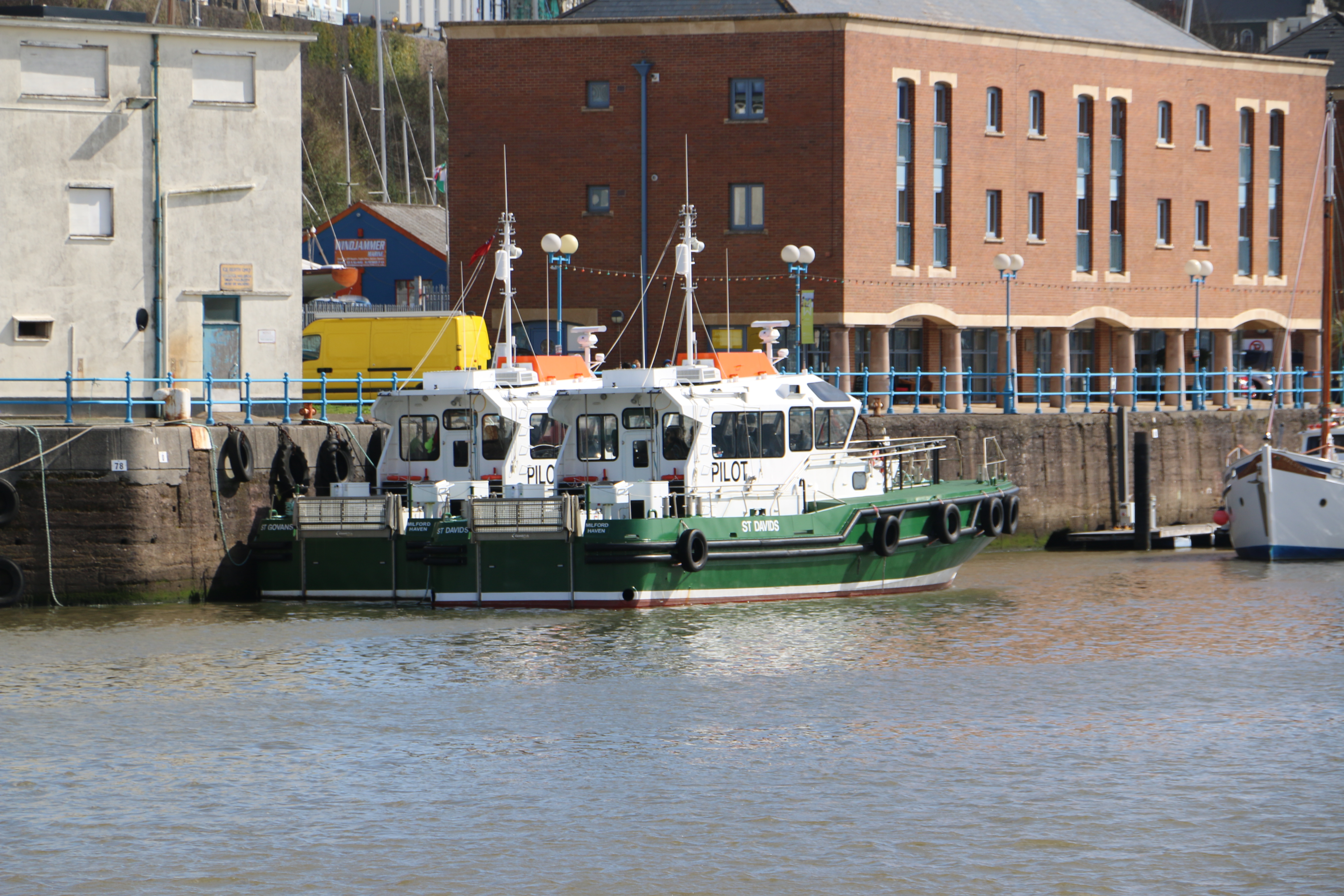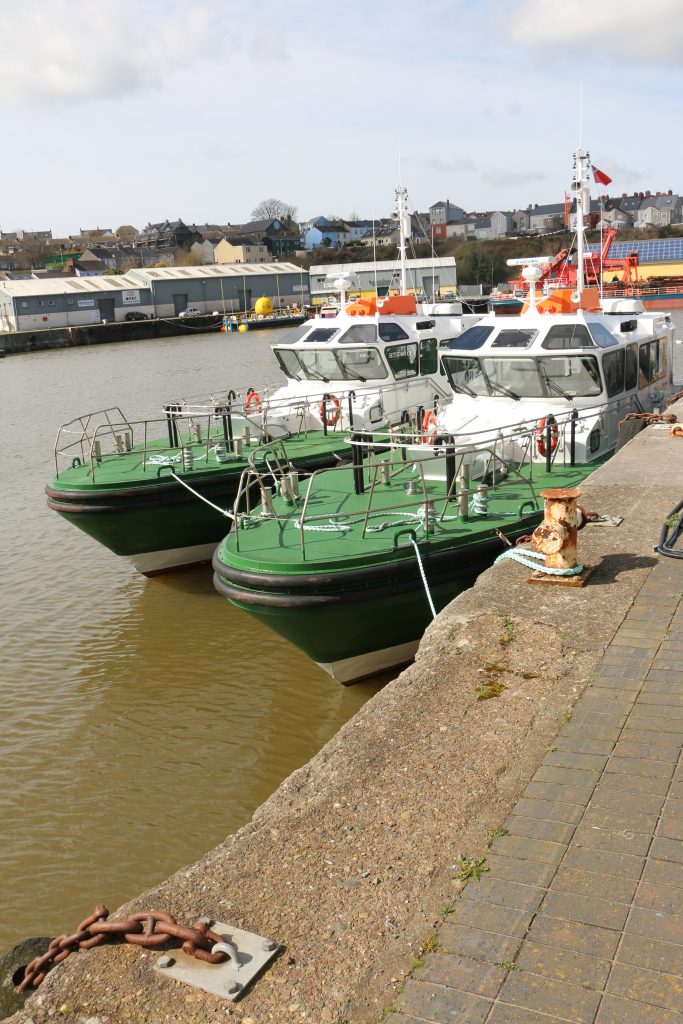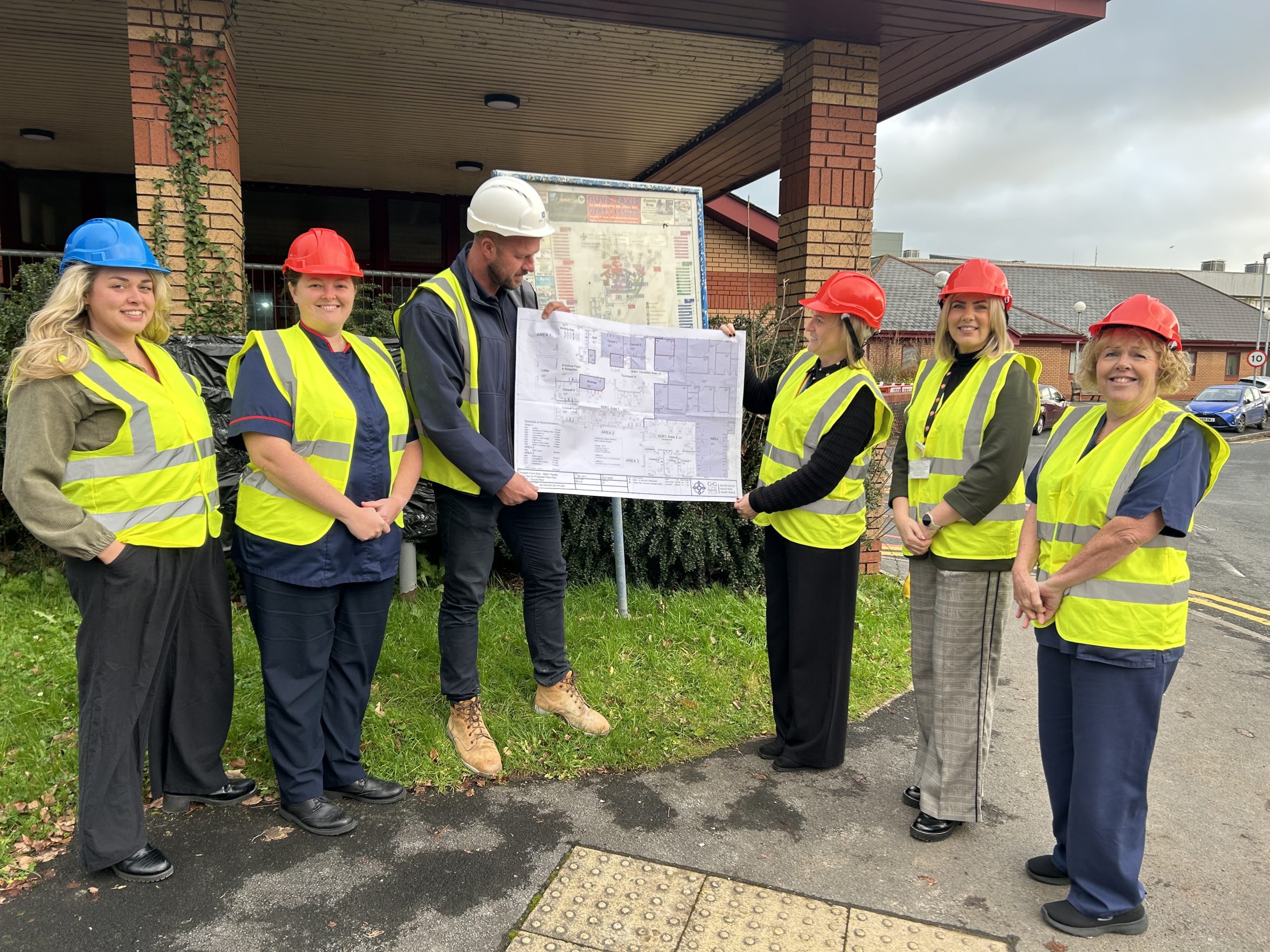News
Milford Haven: New pilot boats ‘not fit for purpose’ [UPDATED]

A MULTI-MILLION pound project to replace the pilot vessels at The Port of Milford Haven, Britain’s largest energy port, has run into trouble – after the three boats were deemed ‘unfit for purpose’ by some crew members.
The brand new vessels, which were built in Pembrokeshire by Mainstay Marine Solutions at a cost £3.6m, have been involved in incidents which have questioned the operational safety of the craft.
St Brides, the first of the 19m pilot boats, was delivered to the Port of Milford Haven on March 24, 2016.
When launched the boat was lauded by the Port of Milford Haven as being capable of reaching up to 14 knots (16.1 mph) with 12 persons on board.
The crafts are designed to be used extensively in heavy weather and are likely to operate in swells up to 5m in wave height.
According to the Port, the boats are able to withstand the impact of coming alongside large tankers in turbulent sea conditions, and provide a safe platform when transferring pilots to and from ships visiting the various terminals along the Milford Haven Waterway.
The three new vessels were intended to replace the Port’s ageing fleet of four: the ‘Skomer’ and ‘Picton’ which were delivered in 2007 and 2009 respectively in readiness for the arrival of LNG, the ‘Portunus’, and the Port’s oldest vessel the ‘Hakin’, which has been operating on the Haven since the early 1980s.
But incidents which have taken place in the last year have led to two of the new vessels being tied up in Milford Haven Docks on an ‘operational pause’ whist the Port keeps some of its remaining ageing vessels in operation.
Two of the old pilot boats, due to have been replaced, the Picton and the Skomer, were identified as being operational this week on vesselfinder.com

Tied up: Expensive new Pilot boats in ‘operational pause’
‘NOT FIT FOR PURPOSE’
A source close to the Port told The Pembrokeshire Herald, on condition of anonymity, that it was not long after the first boat, St Brides, was delivered that coxswains reported handling difficulties with the vessel.
“A cursory check over initially gave that vessel the all clear,” our contact explained.
“However, in July 2016, soon after the second vessel, the St Davids, was commissioned there was a serious accident in which the boat t-boned a gas tanker resulting in her front being crushed in by two feet.
“It’s been widely reported that she was at sea delivering pilots to the LNG carrier The Lijmiliya when it made hard contact with the ship.
“These boats were rushed out, are currently not fit for service.”
A Port press release at the time reads: “The impact was such that it resulted in three of the five Port of Milford Haven crew members who were on board at the time suffering injuries which were minor in nature but required hospital attention. All three are now recovering at home.
Our source told The Herald: “Two of the crew members who were injured were not able to return to active duty and no longer work for the Port Authority. It is my understanding that they are currently pursuing claims with the help of the union against their former employer.
“The severity of the LNG tanker incident was played down and, in my view, even covered over. One of the men badly smashed his arm; and an incident which shortened a vessel by 2 feet involving an LNG tanker is a serious one.”
“Have these crew members been hung out to dry with no money for their injuries only sick pay and whatever pension they have already earned.”
A SECOND SOURCE SPEAKS OUT
The claims made by our anonymous source were backed up by another employee of the Port of Milford Haven, who is currently a crew member on the pilot vessels.
He said that he believes that he and others working on the boat would never have faith in these new vessels, which have been rushed out and are underpowered.
There was no Marine Accident Investigation Branch probe into the incident in 2016 involving the LNG carrier. The Port, our source said, was allowed ‘to do its own internal investigation, which in my mind was not thorough enough, and tossed aside the facts’.
He continued: “I also know about a second incident, which was a near miss, involving another of the new boats, the St Govans.
“The vessel was underway when it was involved in a non-contact near miss with an oil tanker.
“When I say near miss, I mean near miss. The St Govans was just metres away from the tanker and those involved were severely shaken up.”
A Marine Accident Investigation Branch spokesperson said: “The St David incident was reported to us and we made enquiries, but did not conduct a full investigation. We receive between 1500 and 1800 reports of accidents of all types and severity each year. On average this leads to 30 separate investigations being launched.”
Assistant Harbourmaster John Warneford was on-board the pilot boat at the time.
Our source also told us: “The management of the Port Authority were told on many occasions that the specifications of the new vessels were not up to par. The main problem being that they are so underpowered, they are unsafe to use in high seas.
“We were also concerned about the fendering system. A previous problem with de-misters has been partially solved, with cold blowing de-misters being retrofitted.
“These are boats on the cheap, it’s about cutting corners, saving money, and bonuses for top management.”
PORT COMMENTS
Alec Don, Chief Executive at the Port of Milford Haven, told The Herald: “Our pilot boats perform some of the most challenging operations within the Port limits, transferring our pilots on and off ships that visit the UK’s biggest energy port throughout the year.
“The safety of our launch crews and of the pilots they carry is our principle concern. While all our launches are operational, the new ‘Saints Class’ are still operating under some restrictions. This is primarily while we evaluate handling characteristics, iron out any remaining snagging issues and fully understand the root cause of apparent performance differences to the satisfaction of both our marine department and the manufacturers.
“In parallel with this work we are taking the opportunity to review our operational procedures to ensure all avenues are exhaustively explored and addressed.”
VIDEO:
This video, made by the Port Authority and shared on Vimeo, demonstrates the challenges facing pilots, launches and their crews in high seas, and the importance of having sufficiently powered vessels.
British Robin departure from Milford Haven (Video Only) from Port of Milford Haven on Vimeo.
Crime
Boxer and MMA fighter killed in Blaenavon attack as man admits murder

A MAN has admitted murdering a well-known boxer and mixed martial arts fighter who was found seriously injured at a Blaenavon address.
Duane Keen, aged 47, was discovered with catastrophic injuries at a property on Riverside Drive in Blaenavon during the early hours of Thursday, October 17 last year. Despite the efforts of emergency services, he was pronounced dead at the scene.
Kai Pennell, aged 35, appeared before Cardiff Crown Court on Friday (Feb 6), where he pleaded guilty to murder.
He also admitted criminal damage relating to the destruction of a white Suzuki Swift belonging to Rebecca Phillips. A further allegation of making threats to kill will not proceed to trial.
Judge Tracey Lloyd-Clarke told the court that only a life sentence can be imposed for murder, with the minimum term to be decided at a later hearing. Pennell, of Riverside Drive, was remanded in custody and will return to court for sentencing on February 24.
Police were called to the address shortly after 2:00am. Witnesses reported armed officers, paramedics and an air ambulance attending, while the street was sealed off as forensic teams began their investigation.
In a statement, Gwent Police previously confirmed a major emergency response had been launched following reports of serious violence.
Family members paid tribute to Mr Keen, describing him as a dedicated sportsman and a loyal friend.
They said: “Duane was a talented boxer and MMA all-rounder with lots of belts to his name. He would help anyone who needed it and was always at the end of a phone.
“He loved being with his dogs and out walking with them. Duane will be greatly missed by all his family and friends. There are no words to express what we as a family are going through.
“Duane, you were a champ in the ring, but you were the biggest champ to us.”
The court heard that sentencing will take place later this month, when the judge will determine how long Pennell must serve before he can be considered for release.
Further details of the circumstances surrounding the killing are expected to be outlined at that hearing.
Crime
Teenager dies as five arrested in Abertridwr murder probe

FIVE people have been arrested after a teenage boy died following an incident at a property in Abertridwr.
Officers from Gwent Police were called to Lower Francis Street at around 5:45pm on Thursday (Feb 5) following reports that a 17-year-old had suffered a serious injury.
Despite the efforts of emergency services, the teenager, who was from Abertridwr, was pronounced dead at the scene.
His family has been informed and is being supported by specialist officers.
Three men — aged 26 from London, 24 from Abertridwr and 18 from Cardiff — have been arrested on suspicion of murder.
Two women — aged 28 from Hereford and 24 from Senghenydd — were arrested on suspicion of assisting an offender.
All five remain in police custody while enquiries continue.
Detective Chief Inspector Jitka Tomkova-Griffiths said officers would maintain an increased presence in the area.
She said: “We understand that reports of this nature are concerning, and residents will see more officers locally while we continue our investigation.
“It is important that people do not speculate about the identities of those involved, as this could hinder our enquiries.
“If anyone has information, please speak to officers or contact us in the usual way.”
Anyone with information is asked to call 101 quoting log reference 2600038325, contact police via social media or the force website, or report anonymously to Crimestoppers on 0800 555 111.
Health
£2m hospital upgrade to ease A&E pressure at Carmarthen site

MAJOR refurbishment work has begun at Hywel Dda University Health Board’s Glangwili Hospital after more than £2 million in funding was secured from the Welsh Government.
The £2.096m investment will be used to overhaul the hospital’s Same Day Emergency Care (SDEC) unit, creating extra consultation rooms, a redesigned reception, and a more comfortable environment for both patients and staff.
Health chiefs say the expanded unit will help reduce pressure on the hospital’s busy Emergency Department by allowing more people to be treated quickly without needing an overnight stay.
The project forms part of wider efforts to improve urgent and emergency care across the health board’s sites, including the Minor Injury Unit at Prince Philip Hospital.
Keith Jones, Director of Operational Planning and Performance for the health board, said the funding would increase capacity and speed up patient flow.
He said: “This investment will help us reduce pressure on the Emergency Department and provide a smoother, swifter experience for patients. We’re grateful to Welsh Government for the support.”
Services temporarily relocated
While the work takes place, several services have moved elsewhere on the hospital site.
The SDEC unit, Discharge Lounge and Medical Day Unit have relocated to Y Lolfa, formerly Padarn Ward.
The Cancer Information and Support Service and Cancer Psychological Support Service have also moved, although contact details remain unchanged.
Some clinics, including podiatry, neuro-rehabilitation and occupational therapy, will stay at the Priory Day Hospital, but patients may need to use different access routes.
Patients are being notified through appointment letters, and extra signage will be in place around the hospital. Staff are urging visitors to check their letters carefully or contact departments directly if unsure where to attend.
Cabinet Secretary for Health and Social Care Jeremy Miles said the upgrade would help tackle overcrowding and delays.
He said: “This investment will reduce waits, ease handover pressures and improve the overall experience for patients and staff when they need urgent or emergency care.”
Work is expected to continue over the coming months.
-

 Crime2 days ago
Crime2 days agoSex offender jailed after living off grid in Pembrokeshire and refusing to register
-

 Health20 hours ago
Health20 hours agoHealth board targets rise in steroid and gym drug use across west Wales
-

 News3 days ago
News3 days agoPrincess of Wales visits historic Pembrokeshire woollen mill
-

 Crime7 days ago
Crime7 days agoPembroke man accused of child sex offences sent to Swansea Crown Court
-

 Health5 days ago
Health5 days agoDoctor struck off after sexual misconduct findings at Withybush Hospital
-

 Crime22 hours ago
Crime22 hours agoTeacher injured and teenager arrested for attempted murder at Milford Haven School
-

 Community7 days ago
Community7 days ago50s women threaten legal action over pension compensation refusal
-

 News5 days ago
News5 days agoHerald journalists to feature in true-crime documentary on local lockdown murder






































